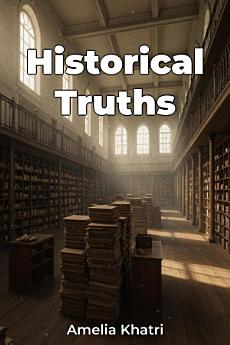Historical Truths
Feb 2025 · Publifye AS
5.0star
1 reviewreport
Ebook
74
Pages
family_home
Eligible
info
reportRatings and reviews aren’t verified Learn More
About this ebook
Historical Truths explores how our understanding of the past is shaped by narratives that aren't always based on verifiable facts.
The book delves into historical cover-ups, the impact of propaganda and misinformation, and the evolving interpretations of historical events, emphasizing the fallibility of historical knowledge.
For example, shifting narratives surrounding events like the Vietnam War illustrate how interpretations change over time, often influenced by socio-political contexts.
The book argues that historical accounts are rarely objective, instead reflecting a complex interplay of evidence, interpretation, and power dynamics.
The book delves into historical cover-ups, the impact of propaganda and misinformation, and the evolving interpretations of historical events, emphasizing the fallibility of historical knowledge.
For example, shifting narratives surrounding events like the Vietnam War illustrate how interpretations change over time, often influenced by socio-political contexts.
The book argues that historical accounts are rarely objective, instead reflecting a complex interplay of evidence, interpretation, and power dynamics.
The book systematically explores the anatomy of historical cover-ups and the process by which historical narratives evolve.
It uses case studies, drawing from diverse sources and disciplines like political science and media studies, to dissect events and their conflicting interpretations.
One unique aspect is its focus on psychological biases, like confirmation bias, that affect both the creation and reception of historical narratives, explaining why certain historical myths persist.
By encouraging critical thinking, Historical Truths helps readers develop historical literacy, enabling them to assess claims, identify biases, and appreciate diverse perspectives, crucial in an age of information overload.
Ratings and reviews
5.0
1 review
Rate this ebook
Tell us what you think.
Reading information
Smartphones and tablets
Install the Google Play Books app for Android and iPad/iPhone. It syncs automatically with your account and allows you to read online or offline wherever you are.
Laptops and computers
You can listen to audiobooks purchased on Google Play using your computer's web browser.
eReaders and other devices
To read on e-ink devices like Kobo eReaders, you'll need to download a file and transfer it to your device. Follow the detailed Help Center instructions to transfer the files to supported eReaders.








